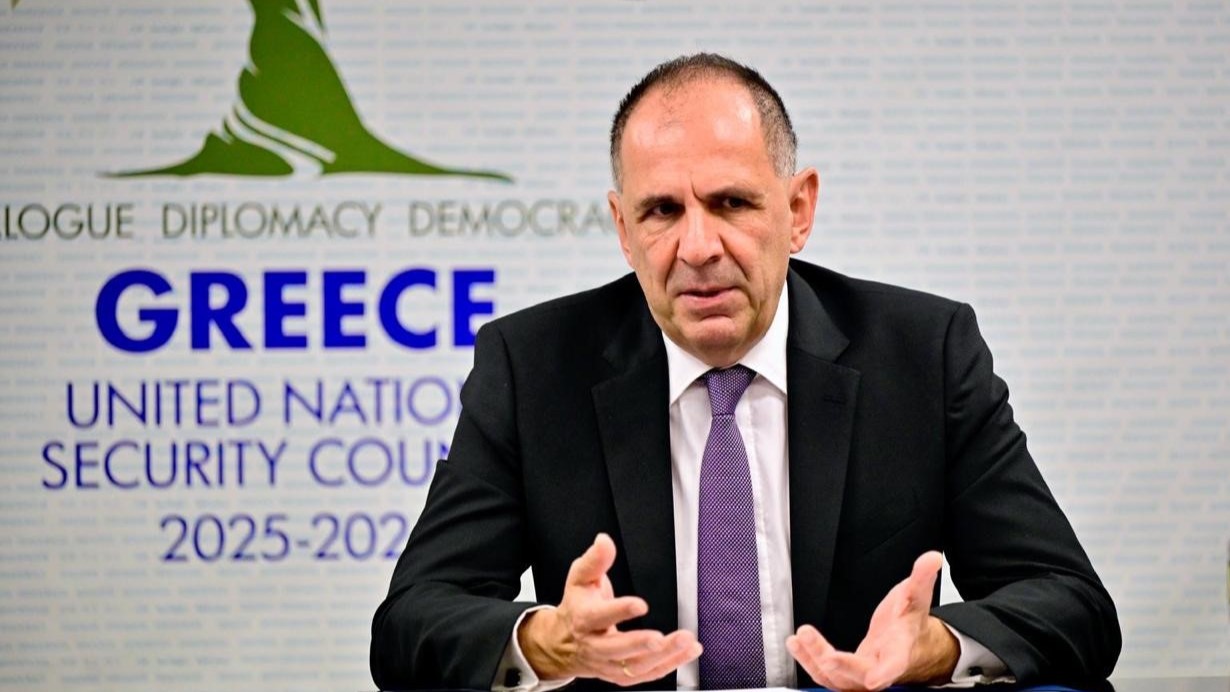
From January 1st, 2025, Greece will hold a seat on the United Nations Security Council as a non-permanent member for a two-year term. This marks the third time our country has been elected to the most significant body in terms of its competence and prestige, since the Organization's founding in 1945. The UN Security Council is primarily responsible for upholding global peace and security as outlined in the Charter. Greece's previous term was twenty years ago, in 2005-06. Our country first participated in the Security Council in 1952-53. Undoubtedly, Greece's election, with an impressive number of votes (182 out of 188 voting member states), represents a vote of confidence from the international community, recognizing our country as a pillar of stability and peace in the Eastern Mediterranean, the Balkans, and beyond.
Greece will have the opportunity to strengthen its diplomatic standing and play a major role in international affairs within the Security Council, particularly with two ongoing wars in its neighborhood, thereby enhancing its geopolitical position. Despite the institutional dominance of the permanent members of the Security Council, the elected members maintain significant opportunities to shape the agenda and influence decision-making. Greece, firmly committed to International Law, will promote the central role of the Security Council in the peaceful settlement of disputes through dialogue and diplomacy, with particular emphasis on the prohibition of the use or threat of use of force. Furthermore, Greece's presence in the Security Council will allow the country to focus on thematic priorities of particular interest, such as combating discrimination, addressing the climate crisis, protecting and promoting children's rights, the role of women in global peace and security, as well as ensuring maritime security.
The hour of responsibility for Greece has already begun, and our country is at the epicenter of international diplomacy. The numerous meetings of the political leadership of the Ministry of Foreign Affairs with all the key actors in the international scene, within the framework of the 79th UN General Assembly, are proof of that. Indeed, the meetings included ministers from globally powerful countries such as China and India, from states at the heart of international developments such as Egypt, Lebanon, Jordan, the United Arab Emirates, and Yemen, from countries with significant regional influence such as Ethiopia, Senegal, Argentina, Panama, and Bolivia, as well as from countries with disputes between them, such as Morocco and Algeria, Armenia and Azerbaijan, Serbia and Kosovo. Further meetings were held with leaders of crucial international organizations and bodies, including the Secretary-General of the United Nations, the Secretary-General of the Arab League, the Commissioner-General of the United Nations Relief and Works Agency for Palestine Refugees in the Near East, the President of the International Committee of the Red Cross, the President of the American Jewish Committee and the President of the World Jewish Congress. The trilateral meetings at the level of Foreign Ministers with Cyprus, Egypt, and Jordan were of great importance for our strategic partnerships.
Greece is a country that may be relatively small in size, but it has acquired a disproportionately large diplomatic capital. This has been accomplished through a foreign policy based on principles. Consequently, our country has become a reliable and influential interlocutor of powerful countries, regional players, and international organizations. Greece can now engage in international dialogue from a position of equality, if not from a position of strength, with its diplomatic capital, combined with a rather uncommon political stability for European standards, the rapidly growing economy, and substantially strengthened armed forces. This progress has allowed us, in cooperation with the Republic of Cyprus, to bring the Cyprus issue back to the United Nations' priorities for the resumption of direct talks, which have already been planned for this month.
Consolidating our strong position is the greatest challenge for our foreign policy and it is the legacy we must leave behind for Greece with great confidence and without fear. In particular, this position allows us to address decades-old problems and attempt to resolve them, with knowledge, wisdom, and a sense of responsibility toward future generations. Because the great moments of history are written when a country is strong on the international stage. International strength has not always been a given.
October 5, 2024


